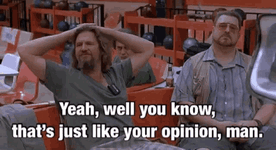- Messages
- 5,741
- Reactions
- 6,664
Constitutionally speaking, since marijuana is not relegated to the Federal Gov't, it is a State's right and is already being taxed by the StatesI hope they legalize it and at least nominally tax it so the name other ATF will change to the BATFME . Everything under one roof .

















